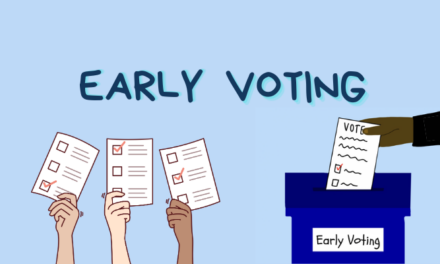Ronald Ehrenberg, director of the Cornell Higher Education Research Institute, discussed the growing financial strains associated with maintaining private research institutions at a videoconference lecture on Wednesday.
The lecture, streamed at The Woodruff Health Sciences Administration building and titled “Is the Golden Age of Private Research Universities Over?” explored the reforms that institutions can implement to continue to thrive.
The University Senate sponsored the event as part of a series of lectures focusing on the sustainability of educational costs.
Ehrenberg, who also serves as the Irving M. Ives Professor of Industrial and Labor Relations at Cornell University, noted that fierce competition between universities has driven up university expenditures.
He compared institutions to “Cookie Monster” from “Sesame Street,” explaining that Cookie Monster’s job is to “find as many cookies as he or she can eat and stuff them into his or her mouth.” Ehrenberg argued that universities today have a similar mentality and search for the best students and faculty. Universities, he said, therefore spend more money, especially in competing for higher U.S. News & World Report rankings.
Rankings are more important to universities than their administrators are willing to admit, Ehrenberg said.
He added that presently, students and their parents feel that the college at which a student gets an education matters just as much as whether the student attends college – a concept that he said is supported by research.
Lowering expenditures leads to lower rankings, thus creating incentives for universities to spend more, he said.
While blaming the “cookie monster” mentality for rising costs, Ehrenberg also mentioned the rising cost of undergraduate tuition.
Ehrenberg said undergraduate tuition has increased at a rate higher than inflation has. He noted that institutions may soon begin to discuss ways to ease the financial burdens of higher education.
Ehrenberg also stressed departmental cuts as a remedy, noting that no university can offer everything. He said that with advances in technology, universities will be able to share courses in the future.
“This is really analogous to the political debate going on [about the deficit],” Ehrenberg said.
When an audience member expressed doubt that his recommendations would lower costs, Ehrenberg joked that he felt “a little bit like Mitt Romney.”
Many audience members said they enjoyed Ehrenberg’s lecture.
Kristin Wendland, a senior lecturer in the Department of Music, said she appreciated learning about the history of university budgets, adding that she is motivated to read more of his works.
College senior Ernest Brown felt that the speech overall had a negative tone but remarked that he felt this tone was appropriate given the circumstances.
He agreed with many of Ehrenberg’s ideas for reform.
“Technology should play a greater role in controlling the cost,” he said.
Ehrenberg ultimately answered the question that his lecture’s title had asked about: whether or not the golden age of the private research universities is over.
“I presented a dismal picture, perhaps, of the future of the private research university,” he said. “My fear is that the answer is yes.”
– Rajiv Vellury
The Emory Wheel was founded in 1919 and is currently the only independent, student-run newspaper of Emory University. The Wheel publishes weekly on Wednesdays during the academic year, except during University holidays and scheduled publication intermissions.
The Wheel is financially and editorially independent from the University. All of its content is generated by the Wheel’s more than 100 student staff members and contributing writers, and its printing costs are covered by profits from self-generated advertising sales.



